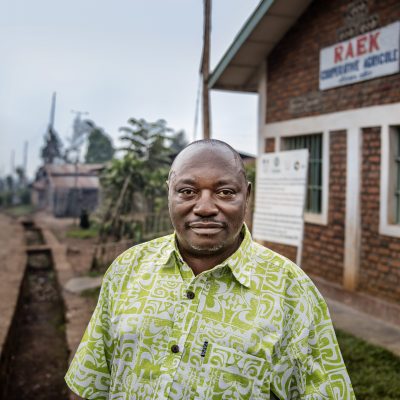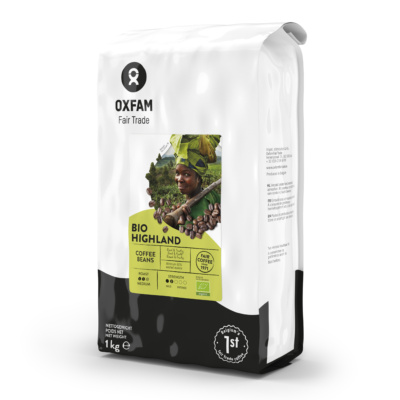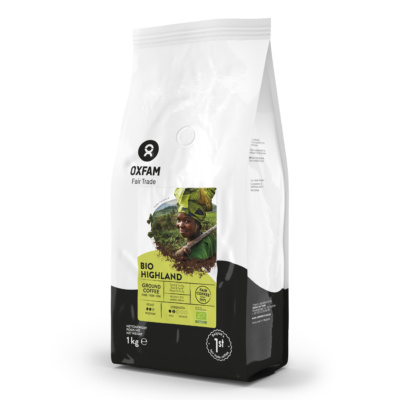RAEK
- fast-growing cooperative of 900 coffee producers in the Democratic Republic of Congo
- made coffee growing an alternative to armed conflict
- sells organically grown, single-origin coffee directly to Oxfam

« In this region coffee growing is now an alternative to armed conflict. »
— Oscar Kubisibwa of RAEK
High-quality, single-origin coffee from Kivu
In the Congolese region of Kivu, near to the border with Rwanda, rebel groups have been fighting four years over valuable minerals and raw materials. That being said, the region also offers the opportunity to tap a very different source of income: coffee! That’s because the soil, climate and elevation of the Kivu region – 1,400 to 1,800 metres above sea level – are perfectly suited for growing high-quality arabica coffee. A single-origin coffee that is highly regarded overseas. The direct export of this ‘black gold’ could serve as a driver of socio-economic development for Kivu. And this is precisely the task that Oxfam's Congolese partners RAEK, Sopacdi and Muungano are engaged in on a daily basis. “The coffee has proved more profitable since we have been able to sell under fair conditions. Until recently some of our producers fought with the rebels to earn their daily bread. Now they have an alternative”, says Oscar Kubisibwa of the RAEK cooperative.Growing cooperative
The fair-trade cooperative RAEK is farming its way to prosperity:- It started with a few hundred coffee farmers in 2012. Today the cooperative has over 900 active members.
- In 2015 RAEK exported its first shipping container of fair-trade coffee and by 2019 it was up to two containers. What's more, all this coffee is certified organic (info in Dutch).
- RAEK is gradually gaining more buyers. And most of them identify RAEK’s product as a speciality coffee. This term refers to single-origin coffee of exceptional quality that sells for a higher price.
Fair trade: a smart investment
RAEK invests – thanks to the fair trade premium (info in Dutch), among other sources – in the areas it needs to in order to take great strides ahead. Such as its infrastructure, which the cooperative develops year after year. It now has two washing stations for coffee beans with sufficient drying tables and storage capacity. Coffee beans need to be dried in the sun. And drying them on tables – rather than the ground – yields a better quality of single-origin coffee. The number of drying tables that the cooperative has thus determines the amount of coffee it can process. RAEK also has its own modest offices – complete with a small conference room – and a central storage depot. In addition to this, the cooperative supports the coffee farmers to produce better quality and in higher amounts. It does so with:- training for the farmers;
- agricultural supervisors who offer producers close guidance.
RAEK & Oxfam
- Oxfam Fair Trade has been buying organic arabica coffee directly from RAEK since 2015.
- Oxfam guides the cooperative in the quest for increased turnover on the international market. In February 2019 we were able to meet with RAEK at the AFCA conference in Rwanda to introduce new clients for their single-origin coffee.
At the moment we sell 2 products from this partner:
Showing all 2 results

